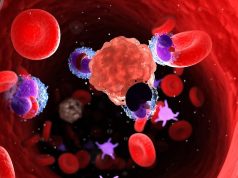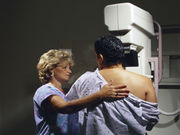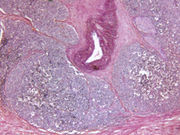Older Blood Appears Safe for Cardiac Surgery Patients
Storage duration doesn't affect complications, mortality rate
FDA Approves Coagadex for Rare Clotting Disorder
First coagulation therapy sanctioned for Factor X deficiency
Report Details Benefits, Risks of Nivolumab for Squamous NSCLC
Benefit-risk summary shows beneficial effects for patients with metastatic SQ NSCLC
SNORA42 Identified as Novel Oncogene in Colorectal Cancer
Increased SNORA42 expression is independent prognostic factor for overall, disease-free survival
Outpatient Spending Higher With Physician-Hospital Integration
Authors say increased spending attributable to price increases, not utilization changes
ACS: Annual Mammograms Should Start at Age 45
Previous recommendation was 40; new guidelines place greater emphasis on approach of menopause
ASTRO: Men’s Health Supplements No Use in Prostate CA
No reduction in risk of distant metastasis, cancer-related deaths, radiation-linked adverse effects
FDA Approves Praxbind to Reverse Pradaxa’s Effect
Praxbind cleared for emergency use with Pradaxa when bleeding can't be controlled
Not All Large Breast Tumors Warrant Mastectomy
Findings suggest doctors shouldn't automatically rule out less invasive surgery plus radiation
Possible Association for Bortezomib Therapy, Chalazia
Twenty-four reports of bortezomib-linked chalazia, mainly involving upper eyelid



















